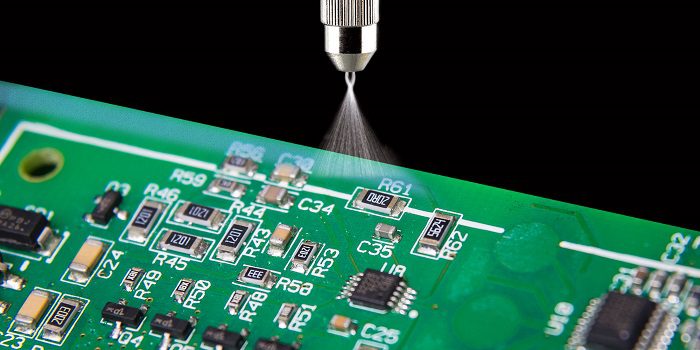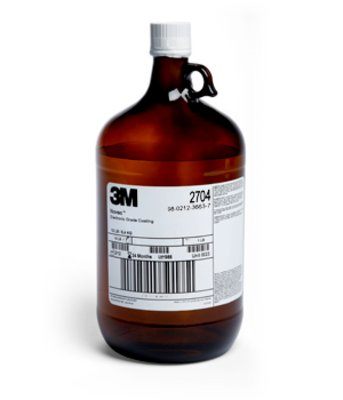There are several options for coating materials, the best option for your particular application depends primarily on your level of necessary protection as well as the operating environment of the final product. General requirements for coating materials are electrical properties; chemical resistance, environmental resistance, and adhesion.
The following categories are based on the base resin of each coating. The chemical composition of each conformal coating determines its major attributes and functions.
Type of Conformal Coating |
Advantages |
Disadvantages |
| Acrylic Resin (AR): Acrylic conformal coating provides fair elasticity and general protection. |
|
|
| Silicone Resin (SR) |
|
|
| Urethane (Polyurethane) Resin (UR) |
|
|
| Epoxy Conformal Coating |
|
|
Comparison table of Conformal Coating Materials
Point rank: Excellent: ++, Good: +, Medium: ~, Bad: -, Very Bad: —
| Type of Conformal Coating | Adhesion | Electrical properties | Chemical Resistance | Moisture Resistance | Temperature Resistance | Abrasion Resistance | Repairing Ability | Ease of Process | Cost |
|---|---|---|---|---|---|---|---|---|---|
| Acrylic | ++ | + | ~ | + | ~ | ~ | + | ++ | ++ |
| Polyurethane | + | + | + | + | ~ | ++ | ~ | ++ | ++ |
| Silicone | + | + | ++ | ++ | ++ | + | + | + | -- |
| Epoxy | ++ | ++ | ++ | ++ | + | + | -- | - | - |
Contact us for more consultant from experts in the Conformal Coating field:






